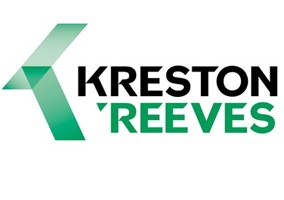Kathy Evans talks about Theresa May's aspiration of a 'shared society' and what the sector needs for it to work.
shared, shar·ing v.tr.
1. a). To accord a portion of something to another or others: for example, you can share my sandwiches.
b). To divide and parcel out in shares: for example, he shared the estate among his heirs.
2. a). To participate in, use, enjoy, or experience jointly or in turns: share a responsibility; share a room.
b). To hold or have jointly with another or others: eg. she shares my view about the election.
3. To relate (a secret or experience, for example) to another or others.
4. To make (a digital file, for example) accessible to others within a network.
By any definition, the idea of creating a more ‘shared society’, of the kind that Theresa May has made the centrepiece of her social policy, should appeal to the very heart and soul of the voluntary sector. Our charitable missions are born of a commitment to relate to others in their hours of need; to share resources with them; to enable people’s participation as equals in society and democracy; and, to spread learning and knowledge throughout our networks.
Many in the sector will agree with the aspiration under which the ‘shared society’ was launched – a clarion call from the new Prime Minister for a kinder society towards people experiencing mental health problems. She spoke with passion in describing how we can all, as neighbours, friends and employers, help to reduce damaging stigma and uncaring responses by sharing human experiences and relating better to each other. The idea that it’s not simply (or solely) government’s job to solve social and personal problems, but a duty shared by all sectors and citizens, is one that we can and should endorse.
As this latest edition of the Independence Report details, however, the voluntary sector’s sustainability and independence remains dominated, and threatened, by a far more ‘transactional’ philosophy. Marketplace approaches to contracting with the most business-like and target-focussed charities share nothing of the philosophy or language of a shared society, or of a shared endeavour between equal partners. The state ‘procures’ what it needs; charities which win contracts have only to deliver as directed, to target, on price. And preferably without public complaint!
As NCVO’s almanac data shows all too clearly, the charities and voluntary groups which lose most from this transactional approach are the many thousands of small, local voluntary organisations – those who share the same realities and challenges as their service users; those who often do what they do for love not money; those who are often better described as human networks for a shared endeavour, than as service delivery businesses ready to tender for contracts. They, more than any other organisations within our sector, best illustrate what a ‘shared society’ looks like. Encouraging them to become more transactional and proprietary about their market value would be perverse in a shared society. Grants, on the other hand, are the perfect tool for investing in these lynchpins of a shared society – and a government truly committed to create one will resurrect grant-making to small charities and voluntary groups with vigour.
More fundamentally though, the great test of whether the ‘shared society’ is a genuine new lodestar for national social policy will be whether it heralds any sea-change in the sharing (redistribution) of society’s resources. The claim to be a more sharing society will not stand up if the pain of austerity continues to fall so unequally on the people, communities and regions who can least afford it. And deep down, everyone in the voluntary sector knows that to be true – whether they feel able to say so publicly or not.
Kathy Evans is the chief executive of Children England
This blog was originally written for the think tank Civil Exchange, as part of a programme of work around its report, A Shared Society? The independence of the voluntary sector in 2017
Related Articles












